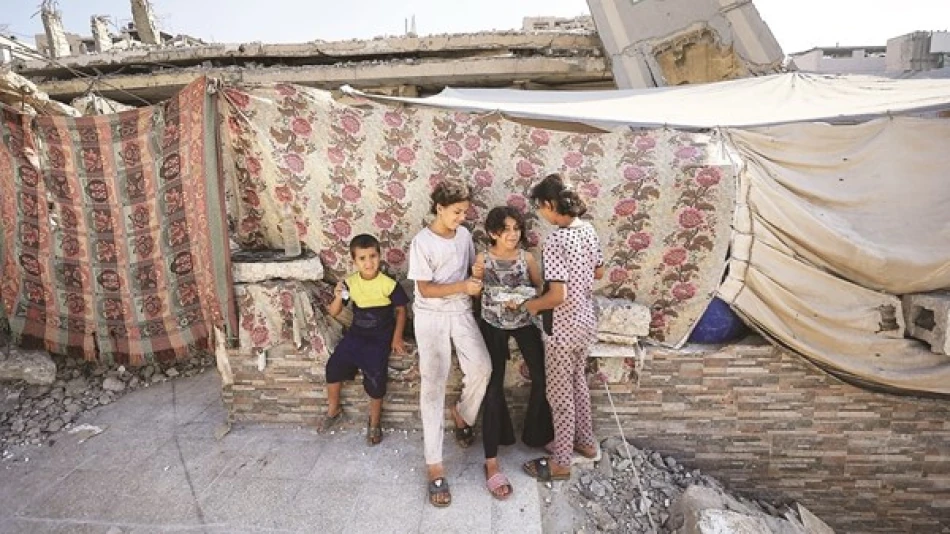
Austrian Aid Groups Urge Action to Protect Civilians in Gaza
Austrian Aid Groups Break Diplomatic Silence, Demand Government Action on Gaza Crisis
Four major Austrian relief organizations have mounted an unprecedented joint appeal to their government, demanding immediate diplomatic intervention to secure a permanent ceasefire in Gaza and protect civilians caught in the crossfire. The coordinated push by Caritas, Diakonie, Doctors Without Borders, and SOS Children's Villages represents a rare instance of humanitarian groups directly challenging their nation's foreign policy approach to the Middle East conflict.
A Coordinated Appeal for Political Action
The organizations staged their demonstration outside the Austrian Prime Minister's office, calling for the Cabinet to formally place Gaza's humanitarian crisis on its agenda. Their demands extend beyond symbolic gestures—they want Austria to deploy "all possible political, diplomatic, and economic measures" to end the conflict.
Alexander Bodmann, Deputy Director of Caritas Austria, delivered a pointed message to the country's political establishment: "Silence is not an option, and politicians must act now." His statement reflects growing frustration among humanitarian workers who see their efforts undermined by ongoing military operations.
The Weaponization of Aid
Bodmann's criticism went further, condemning the use of vital relief supplies as military leverage against Gaza's starving civilian population. This accusation touches on a broader debate about how humanitarian aid becomes entangled in conflict dynamics, often serving strategic rather than purely humanitarian purposes.
Children Bear the Heaviest Cost
Christian Moser, Director of SOS Children's Villages Austria, painted a stark picture of the conflict's impact on Gaza's youngest residents. With thousands suffering from acute malnutrition and the majority of schools destroyed, "children are losing their childhood and any hope for a secure future," he warned.
These statistics align with broader patterns observed in prolonged conflicts, where educational infrastructure becomes both a casualty and a long-term obstacle to post-conflict recovery. The destruction of schools doesn't just affect immediate learning—it creates generational gaps that can persist for decades.
Austria's Diplomatic Balancing Act
The appeal puts Austria in a delicate position within European Union foreign policy coordination. While maintaining strong ties with both Israel and Palestinian territories through various aid programs, Austria has traditionally avoided taking strong unilateral stances on Middle East conflicts, preferring to work within EU consensus frameworks.
The humanitarian organizations' specific demands include combating hunger, ending the blockade on aid deliveries, protecting medical workers and journalists, and lifting restrictions on medical supplies and equipment. These requests mirror similar appeals made to other European governments, suggesting a coordinated international humanitarian response.
Broader Implications for Humanitarian Diplomacy
This coordinated action by Austrian relief organizations reflects a growing trend of humanitarian groups becoming more politically assertive. Rather than maintaining traditional neutrality, these organizations are increasingly willing to pressure their home governments to take stronger diplomatic positions.
The move could influence other European nations where similar humanitarian coalitions might emerge, potentially shifting the diplomatic landscape around Middle East policy. For Austria specifically, the appeal represents a test of how responsive democratic governments can be to civil society pressure during international crises.
The success or failure of this initiative may determine whether other humanitarian coalitions across Europe adopt similar direct-pressure tactics, potentially reshaping how relief organizations engage with foreign policy in democratic societies.
Most Viewed News

 Layla Al Mansoori
Layla Al Mansoori






